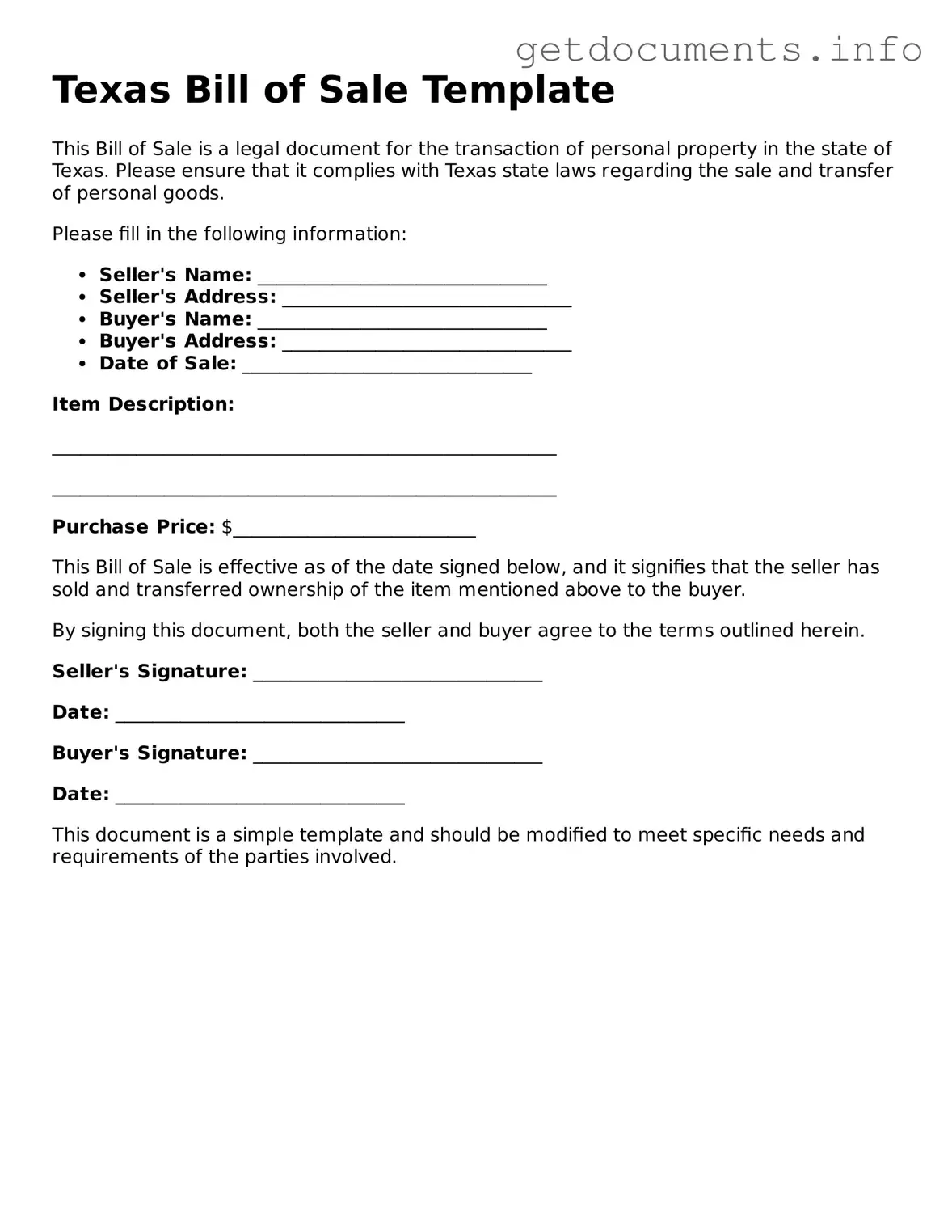Free Bill of Sale Template for Texas
The Texas Bill of Sale form serves as a legal document that records the transfer of ownership of personal property from one party to another. This form is essential for ensuring that both the buyer and seller have a clear understanding of the transaction details. To facilitate your own transaction, consider filling out the form by clicking the button below.
Access Bill of Sale Editor

Free Bill of Sale Template for Texas
Access Bill of Sale Editor
Got places to be? Complete the form fast
Fill out Bill of Sale online and avoid printing or scanning.
Access Bill of Sale Editor
or
⇩ PDF File
